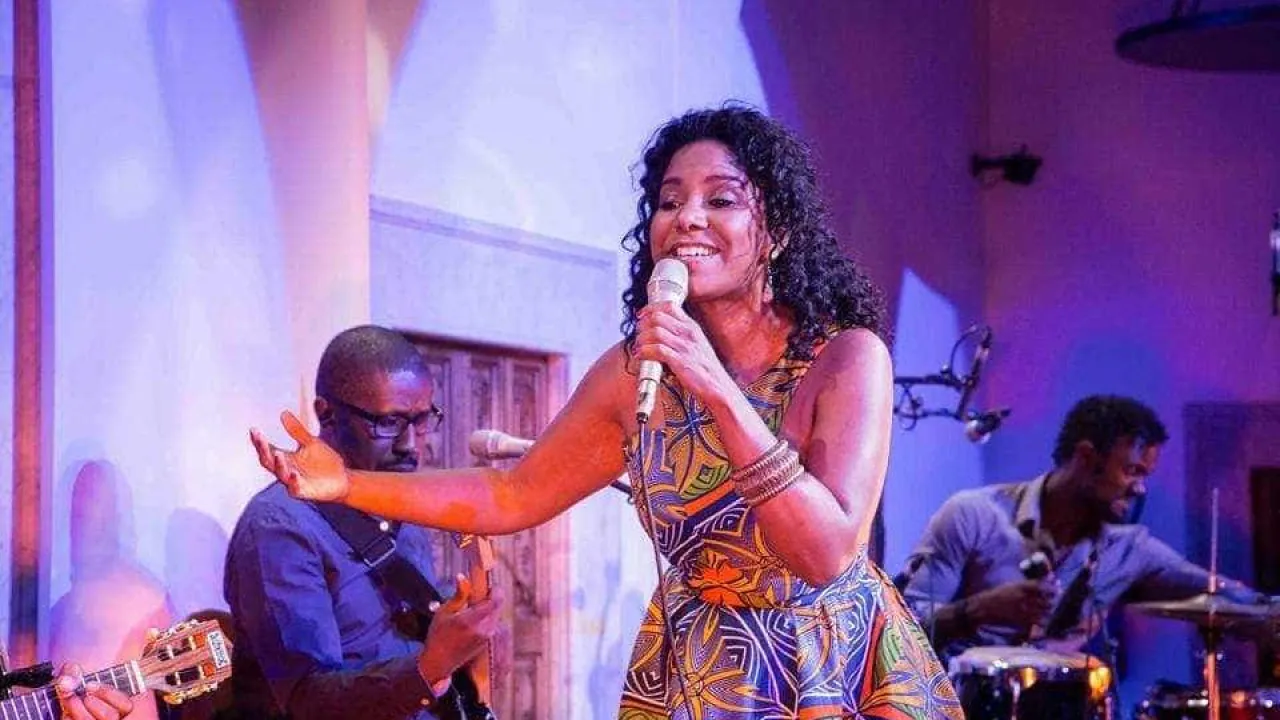
In an interview with Lusa, Nancy Vieira described the fusion as “natural,” referencing her musical collaboration with Brazilian musician Fred Martins.
“I meet people and grow fond of them, as was the case with Fred. We were introduced by Azorean musician Paulo Borges in 2013,” said Nancy Vieira, noting that the Azorean musician is “a great connoisseur” of her “musical soul” and had often mentioned the Brazilian singer and guitarist to her, and vice versa, until they finally met.
At the time, Fred Martins was recording an album, and the Cape Verdean singer was invited to participate in a track titled “O Samba Me Diz” (Marcelo Diniz/Fred Martins). “A friendship grew, and naturally, the desire to make music together.”
The album consists of 11 tracks, opening with “Não Sou Daqui” and closing with “Trago Risos.”
The lineup includes the bolero “Tú me Acostumbraste” (Frank Domínguez), a creation of Chavela Vargas (1919-2012). Another recreation is “Saiko Dayo” (Gregório Gonçalves) by Bana (1932-2013), which blends Cape Verdean rhythms of morna and coladeira with jazz and blues influences, featuring Jorge Cervantes.
Nancy Vieira stated that the recreation of the bolero “Tú me Acostumbraste” “has bossa nova elements, as do the mornas on the record; these Latin American rhythms have been a passion of mine for many years.”
This album musically draws a triangle between Cape Verde, Brazil, and Cuba, with the singer highlighting “the great brotherhood, affinity, and familiarity between Cape Verde and Brazil.”
Nancy Vieira mentioned various Cape Verdean performers who have sung Cuban songs, such as Cesária Évora (1941-2011), who recorded with Cuban composer and singer Compay Segundo (1907-2003) and the “legendary group Voz de Cabo Verde,” known for singing and recording cumbias and boleros.
“When I was a child, in the 1970s and 1980s, I listened to those songs by the legendary band Voz de Cabo Verde as if they were ours too, and they played and sang them as if they were theirs,” said the artist, emphasizing, “These songs blend with our musical heritage, and indeed there is a great brotherhood.”
The opening track, “Não Sou Daqui,” is a song composed by Amélia Muge during a stay in Cape Verde, addressing current realities, especially migrant issues: “Essentially, it tells us that she is not from Cape Verde, but she enjoyed being there and understanding how others live, finding her place in Cape Verde.”
A theme significant to Nancy Vieira and Fred Martins, “foreigners living in Portugal who, in some way, are well-received and find their place, but this hasn’t been the case for many foreigners,” leading the duo to “leave this message [that it is possible] to find one’s place, even where it isn’t the place of birth or family, and that family can be those who aren’t of [the same] blood; that’s the message.”
“Esperança” is released by a Japanese label, Respect Records, and has already been presented in Japan, following the album “Gente” (2024).
Nancy Vieira emigrated to Lisbon at age 14 and debuted in 1995 with the album “Nós Raça.”
Throughout her career, she has collaborated with various musicians, such as Rui Veloso, Ildo Lobo, Titina Rodrigues, Ala dos Namorados, Rão Kyao, and Dani Silva. In 2008, she participated in the album “Mulher Passa a Palavra,” alongside singers like Ana Moura, Teresa Salgueiro, and Dulce Pontes, among others.
Born in 1970, the award-winning Fred Martins began composing in the 1980s, in partnership with Marcelo Diniz and Manoel Gomes. His works have been performed by artists such as Ney Matogrosso, Adriana Calcanhotto, Zélia Duncan, among others, and have also featured in soap opera soundtracks.




